Taking the Best Lesson from a Bad Situation
By Riley Rath
Yes... you read that headline right...
I think there are situations where players, regardless of their character's abilities, SHOULD look up the monster stat block.
And here is a story that explains why...
During one session, it became clear that if our party was going to find The Tomb of Obereck, we would have to retrieve a clue from a very difficult place...
The bottom of a VERY deep lake.
The obvious problem was that our party consisted of a human (can't breathe water), a firblog (can't breath water, strongly prefers land), and a aarakocra (can't breath water and HATES being anywhere that does not have an open sky... to the point of refusing to go).
Even when we "coincidentally" stumbled upon some potions of water breathing, we were pretty skeptical. Because no matter what, we would each be sitting ducks to any aquatic creature or monster attacking us. And since this was Dungeons and Dragons, that was definitely going to happen.
But... adventure is out there!... so off we went. We arrived at the lake, dove in, and swam deep, deep into the dark waters... guided by a magic scepter that glowed brighter as we got closer.
And, at the bottom of the lake, amidst the ruins of some ancient civilization, we found a porcelain vase, detailing the burying of some long forgotten king.
But wouldn't you know it, juuuuuuuuuuuuust after we get the vase, suddenly some giant, monstrous, deep lake frogs (2) began attacking us! Seems like that happens so often in DnD... huh?

Specifically, this homebrewed monstrosity... the Gitrog
Needless to say, as soon as the DM showed us a picture of the monstrosity and the huge tokens popped up on the virtual map, us players were terrified.
Thankfully, I had a trick up my sleeve... an emergency spell I could use as a Hail Mary in case things went south. For I was a cleric... and I had prepared Banishment.
Now if the creature had high charisma, like some sort of water fey or black dragon, we were still screwed. But if the monster more resembled a beast than a magical foe, the better chance we had. And based on the monster's attacks and how the DM was role-playing them, I thought we had a shot.
So when it came to my turn, I took a moment to survey the battlefield... to really consider if NOW was the moment I should play this card. And given the action economy, it seemed prudent to give us the advantage earlier rather than later.
Me: "Okay... you each see beaming light emit from my holy symbol... and another beaming light surroundings one of the monsters... and as I pray to Pelor, and the cold water fills my throat, I beseech his good will to grant me strength and banish these beasts into oblivion!"
Me: "The monster has to make a Charisma Saving throw."
DM: (rolls)
DM: ... “27?”
My face dropped.
That was it... that was my backup plan... my ace in the hole... and not only did it fail spectacularly, but it revealed that it would fail even if I tried to cast it again. Defeated, I swam farther away, and it moved to the next turn.
But as my friends began taking their turns, something seemed off. I couldn’t shake the feeling that something was so weird about that. I mean, a 27?!? That seems REALLY high?
So... I did something I had never done before and have never done since: I looked up the monster stats.
And with a quick google search... I discovered the problem.

The Gitrog has a charisma of 5... a -3 modifier... literally impossible for it to roll any higher than a 17... and my DM said it was a 27...
Me: "Um... Ned... you said you got a 27, right?"
DM: "Yeah, that's right."
Me: "Well... the stat block has a charisma of 5..."
DM: "YOU LOOKED UP THE STATS?!?!?"
Players: "OMG..."
The DM got defensive and angry... I got defensive and angry... I was accused of cheating... he accused me of metagaming... trust had been broken... and it was ugly.
Now as bad as it was, it wasn't fatal; we all had to take a moment before continuing the combat, and were able to continue the campaign. Miraculously, we did survive this encounter (that is a story for another time) and in such a way that it completely redeemed this experience, but I want to use this post to really hammer home the point.
There are some situations where D&D players should be allowed to see the stat block of the 5e monster they are fighting.
And for one, simple reason: to hold the DM accountable.

Image © Beholder's Eye Podcast
The DM is the deity of the game... the all powerful arbiter of gameplay. But "DM" is a title, and while the DM holds an omnipotent scepter, the person in that position is a fallible human being.
And sometimes that fallible human being gets caught up in the moment, or excited, or tempted, or forgetful. It makes sense why: they have a million and a half things they have to keep track of in every session, let alone every campaign. And with the responsibility of leading everyone to have a great time, it can be easy to justify cutting corners.
That said... don't do what I did!
I cannot suggest this enough. I should have waited until after the session, looked up the stats, and then approached Ned with how I felt like he was unnecessarily screwing me and how it made me feel as a player.
But I think Dungeon Masters would be wise to allow a player at the table to be even more of a rules lawyer… to look up stat blocks here and then and keep the DM accountable. Yes, the DM has final say, and no debates should take place, but sometimes the players need a good defense lawyer.
But here’s the catch to letting players look at DND 5e monster stat blocks in the middle of combat:
They CANNOT be metagamers.
No matter what, players need to stay in character, continue to role play in combat and act from the character’s perspective. After some time in the Dungeons and Dragons world, players will see repeat monsters, and will intuitively know the EXACT weakness of the monster or creature. But a good player will not abuse that knowledge and will continue to act as their character, who has never encountered this monster, would.
That was the source of the fight: the DM thought I was just upset my plan didn’t work and was therefore going to metagame. That wasn’t the case at all… I may love my character, but I would rather they die than suck the mystery, strategy and excitement from every combat encounter by looking up stat blocks.
I was just suspicious that my DM was either A) taking homebrew WAY over the line (changing a creature's CHA from 5 to 15 is no minor alteration), or B) blatantly cheating my agency as a player because he didn't like that I had Banishment prepared.
He is not a bad DM… he is not a bad person. Just in that moment it would have been good if someone at the table could have held him accountable, or known ahead of time that the DM made such a massive homebrew change.
What do you think? Are you curious to add this check/balance to the power at the table? Or do you think I am the villain of the story?
Comment below and let us know. If you think I’m the villain… I… I get it.
Riley Rath

Riley is a freelance copywriter, content writer, and marketer based out of Spokane, WA. He is thankful to have the opportunity to combine his passion for imaginative role-playing to help FLGS, tabletop, board game, and D&D related businesses communicate their distinct value to players everywhere. When not playing or writing about board games or DnD, he is busy hiking, cooking, and gardening... very hobbit-like for a 6'4" dude.
Follow the link to see what DnD + board game marketing tasks I can do for you

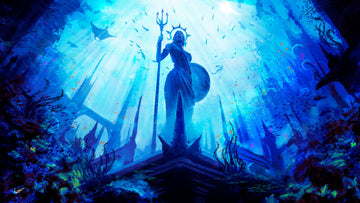
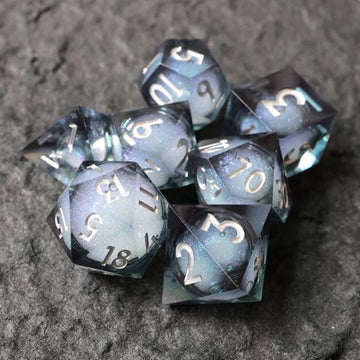

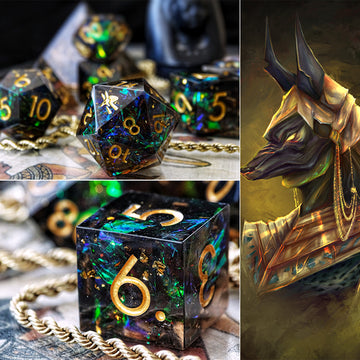
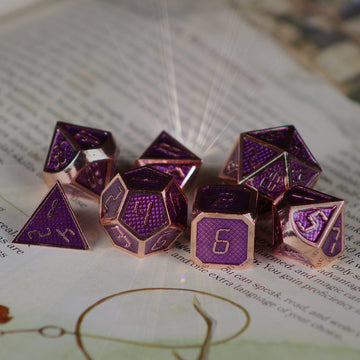
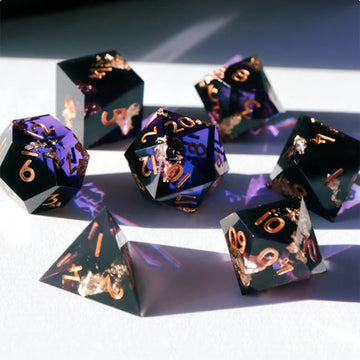
I have very complicated feelings about this. I am new to DND, so I’m still learning the lay of the land, so to speak. I completely understand the importance of a player not using their “out of character” knowledge in game play. What would be the point of making a character if you’re just going to do whatever you want anyway? Where’s the fun in that? But I’m struggling to understand the logic here. Are adventuring parties meant to be a bunch of idiots who voluntarily seek adventure having lived a cloistered pampered lives (all of them)? It is hard for me to imagine someone looking for adventure heading off without asking any questions of anyone who’d gone before them. How are they even inspired to do this if not one of them ever encountered a mystical creature…or has heard stories of battles with creatures from far away…or had tales passed down from generation to generation about ANY of the beasts they encounter? Unless every single one of the party received training and/or mentoring from complete idiots…they would have at least a little knowledge of SOME beasts. Someone in our party has literally looked up every beast we have encountered in our game and in close to eight months of play it has not only NEVER ensured our victory. Three of our party have died, all of us have been in death saving throws multiple times and I can’t even remember how many times we were saved by dumb luck. Even if you know all of the stats and one of you just happens to have just the right spell or weapon to defeat the beast, and the hit points to survive the initiative order, as well as justification for knowing to use the weapon or spell…you still have the randomness of the dice and the ingenuity of the DM to create additional impediments to reaching that goal. I guess it’s how you view the game…it’s either a competition between the DM (who is apparently bent on killing everyone) and the party (who are not actively seeking death, but adventure) or it is collaborative real time story creation between DM and the adventuring party, with random dice throws contributing to the narrative. I know I am going to catch a lot of fire for saying this, but if, as a DM, your only move is throwing arcane virtually unbeatable beasts into the path of a party that has absolutely no knowledge of said beast…that’s pretty lame.
What was the DM’s reason for the 27 save?